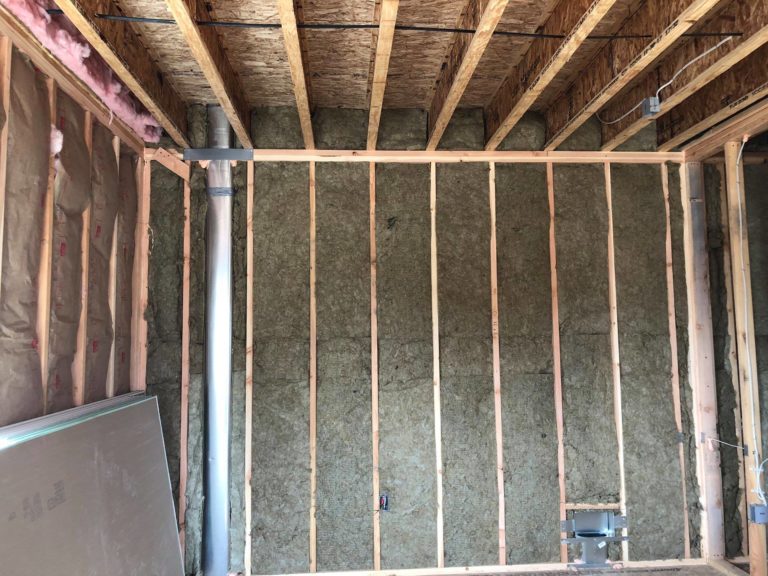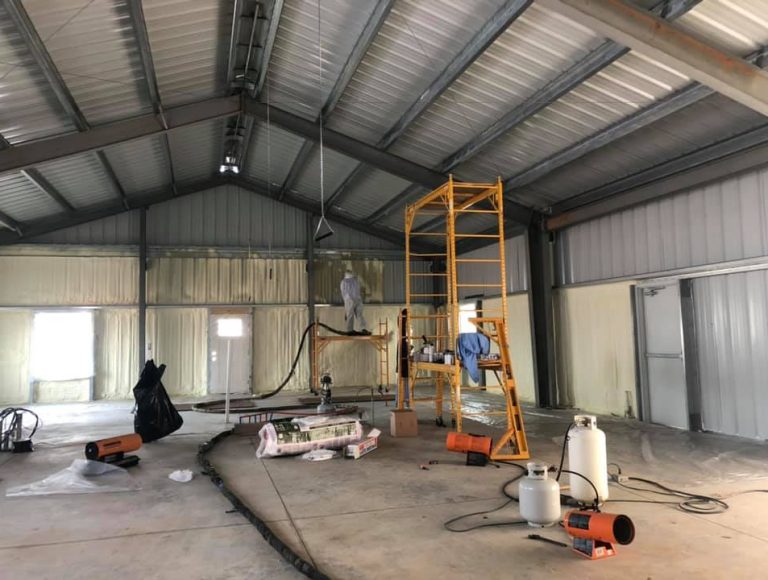Commercial
Commercial Insulation
- Available in New Jersey, Pennsylvania & North Carolina.
- Fiberglass Insulation
- Spray Foam
- Loose Blow-In Insulation
- Mineral Wool Insulation
What is most important when thinking of the right insulation for your building?
Insulation is a key factor when making considerations for your business. Educating yourself on the different types of insulation listed below, will help you determine how you can start saving money on heating and cooling costs. With commercial buildings you want to take into consideration the size of the space and how the space will be utilized.

Fiberglass Insulation
Choose the right Fiberglass R Value and other tips
Fiberglass or “Batt” insulation is the most common heat barrier used as well as a cost effective option. The term R-Value refers to the ability to reduce heat flow, the higher the R-Value the less heat & cold escapes through the insulation. Fiberglass has a backing that serves as a vapor barrier to reduce moisture from building up on the wood inside the walls, reducing the possibility of mold growth. Made from recycled materials, Fiberglass is a non-combustible material allowing it to be recognized as fire blocking material in wood and steel framed structures. Blow-in or “loose fill” Insulation is commonly used in larger spaces and can be added to pre-existing insulation as well to increase the R-Value allowing less air to escape the walls or ceilings.
Pros for Fiberglass
- Cost Effective
- Lifetime of 10-25 years
- Reduces energy costs

Spray Foam Insulation
Considerations for Spray foam
There are two types of Spray Foam, Closed Cell & Open Cell. Closed Cell Spray Foam creates a barrier that is airtight, meaning your heating and cooling costs could significantly decrease. It decreases mold growth and moisture on the wood inside the walls. Open Cell Spray Foam is not as dense as Closed Cell, allowing it to expand and make it easier for hard-to-reach places. Generally used for sound proofing an area, open cell will not insulate a building as well as Closed Cell but is a good option for noise reduction in certain spaces. Spray Foam also does not lose R-Value over time making it more efficient than Fiberglass. While cost is 3-4 times greater than traditional Fiberglass, your savings on energy will exceed that of traditional Fiberglass.
Pros for Spray Foam
- Most energy efficient option
- Lifetime of 80+ years
- Added structural integrity
Receive your free consultation today

